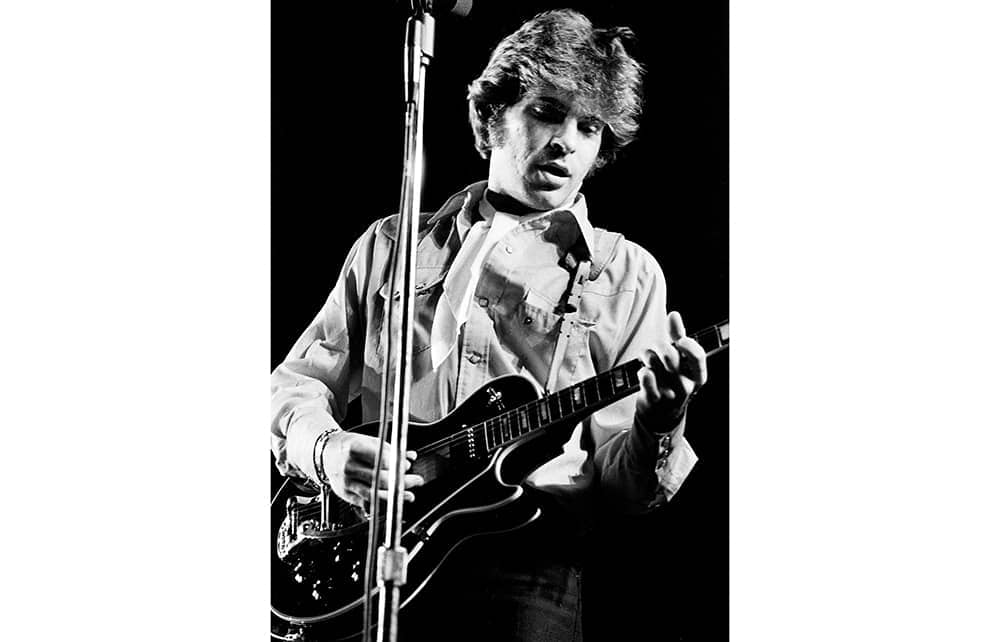Million-selling rock bands are rarely happy families. They are an uneasy combination of a creative alliance and a business partnership, which is frequently thrown together on an ad hoc basis by people barely out of their teens. They are tested to destruction by long hours, minimal sleep, deafening noise, international travel, a bedroom schedule that would have made Caligula blush and a seemingly unending cocktail of legal and illegal stimulants. As the old joke goes, there is also a downside.
This is the accepted pattern. But Creedence Clearwater Revival – who enjoyed a spectacular worldwide run of hits during the brief period between their first great success in 1969 and their 1971 implosion – did not conform to it, rehearsing every day, performing sober at shows and consisting of the same four people who first began playing together in 1958. The undisputed band leader, John Fogerty, who wrote and sang all their hits, was asked by Bob Dawbarn of Melody Maker in April 1970 how they had stayed together for so long when so many other bands split acrimoniously after a year or two. He replied: ‘I wish marriage could work as loosely as our band does. We don’t have any problems in that way.’
John Fogerty reduced his fellow band members almost to the status of hired hands, including his brother
Although that particular quote does not appear in John Lingan’s book, fans of the band would certainly raise an eyebrow at Fogerty’s blithe assertion, because over time the singer assumed iron control over virtually every aspect of Creedence. His fellow musicians were reduced almost to the status of hired hands, including his brother Tom, who quit in 1971, frustrated after years of being sidelined.
A Song for Everyone draws on previous Creedence books, including Craig Wener’s Up Around the Bend (1999), Hank Bordowitz’s Bad Moon Rising (1998), and John Fogerty’s own Fortunate Son: My Life, My Music (2015). John did not respond to the author’s interview requests, and Tom died in 1990, but Lingan spoke extensively to the original bass player Stu Cook and the drummer Doug Clifford, and there is much first-hand material here. The story is entertainingly told, but goes astray in matters of interpretation, sometimes presenting debatable opinions as facts while ignoring information which does not suit the author’s argument.
‘They were 15 years old and nearly all their heroes were black musicians’, claims Lingan; yet while their admiration for such artists is well documented, the future Creedence members were also inspired by performers such as Elvis Presley, Link Wray, Carl Perkins, Roy Orbison and Johnny Cash. Their debut 1968 chart entry was a cover of Dale Hawkins’s 1957 white Southern rockabilly hit ‘Susie Q’, while their classic worldwide smash ‘Bad Moon Rising’ was directly inspired by ‘I’m Left, You’re Right, She’s Gone’ (1955), one of Elvis’s Sun singles that defined the whole rockabilly genre. As Fogerty wrote in his autobiography:
Unlike contemporaries such as James Brown or the MC5, Creedence were not overtly political, nor did they write protest songs about the many cultural flashpoints affecting 1960s American society. Yet Lingan is sidetracked by an apparent compulsion to provide blow-by-blow accounts of every student protest, civil rights march or development in the unending Vietnam war, despite the fact that all four band members successfully avoided conscription and were from the outskirts of San Francisco rather than the segregated Deep South.
It isn’t necessary to have lived through the 1960s (which, incidentally, Lingan did not) to write about them; but to say that Hullabaloo (1965-66) was ‘the nation’s first rock’n’roll TV show’ ignores both Shindig! (1964-66) and American Bandstand, which began broadcasting nationally in 1957. Moreover, despite regularly quoting Rolling Stone, Lingan seems never to have seen an early copy of it, otherwise he would not describe it in 1969 as ‘always fat, with full-page colour ads for bands whose records and singles hadn’t come close to Creedence’s chart success’. Back then it was a simple, folded, black-and-white broadsheet, with one alternate shade of ink for emphasis on the cover, very different from the glossy publication it later became.
Finally, many readers might strongly disagree with Lingan’s claims that Creedence were ‘considerably harder’ than the Velvet Underground (‘Sister Ray’, anyone?); that in 1971 they were ‘the most famous band in the world’ (the Stones and Led Zeppelin would like a word), or the overblown, unsupportable statement that ‘for the members of Creedence Clearwater Revival, 1969 was the biggest year of their lives – the biggest year of any American band’s life ever’. As it happens, the single which outsold all others that year was indeed from an American band: it was ‘Sugar Sugar’ by the Archies, who, unlike Creedence, didn’t have personality clashes or management problems because they were a set of cartoon characters from a TV animation show.






Comments